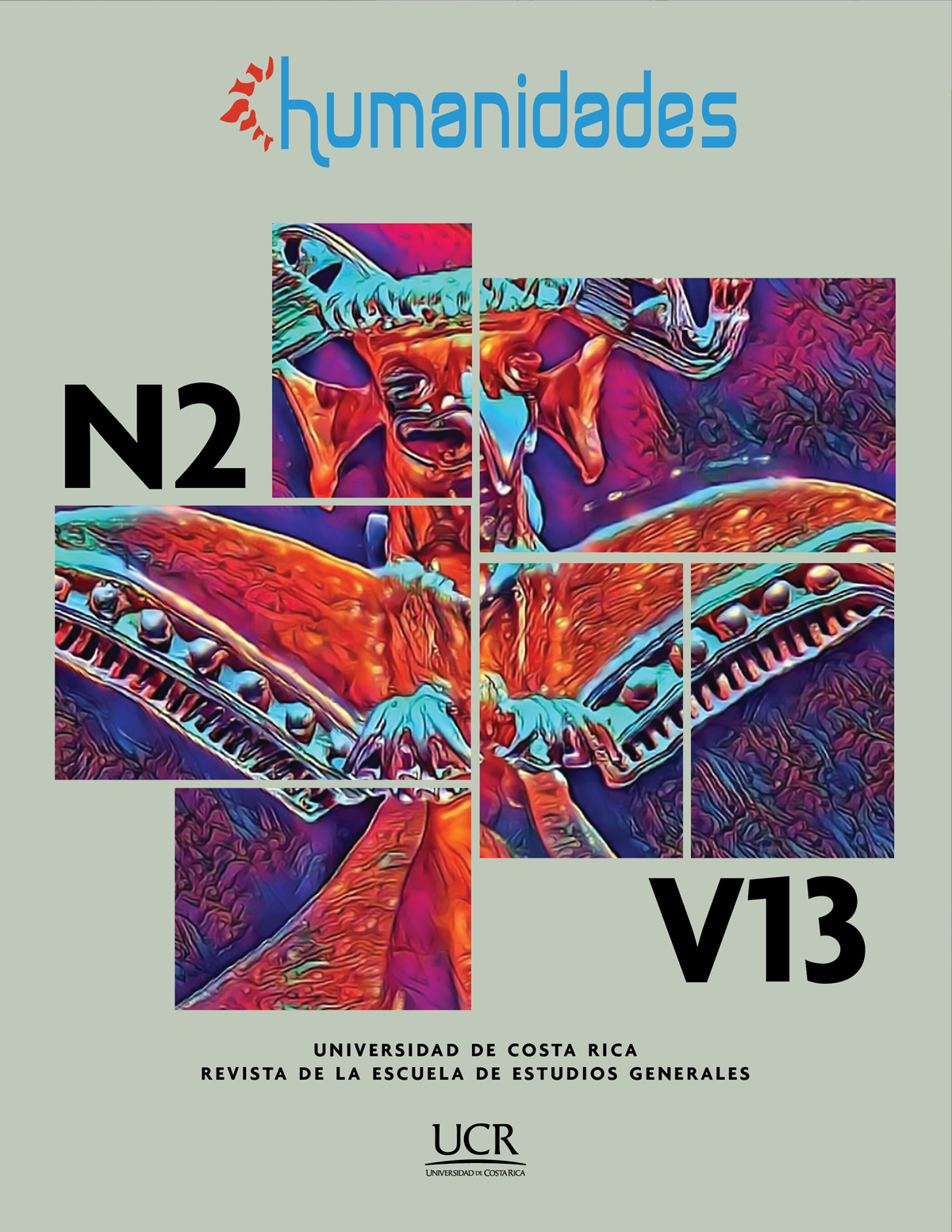Abstract
This paper reflects on a philosophy of education centered on the perception of rhythms in accordance with forms of relationship with the environment, based on care for life. In this direction, we will carry out an ecocritical analysis of the play Terrenal. Pequeño misterio ácrata (2014) by Mauricio Kartun, which allows theorizing about the relevance of paying attention to the rhythms, pulses, and harmonies of literary texts (and other artistic formats) in the construction of educational proposals that aspire to dislocate the expansive logic of the current societies of globalized capitalism. The critical analysis of this issue is of particular relevance when it comes to envisioning alternative ways of life that can be related, in a more harmonious way, to the scales and proportions emerging from the interaction between the multiplicity of beings that make up a territory of life.
References
Berardi, F. (2020). Respirare. Caos y poesía. Prometeo Libros.
Biset, E. (2010). De la configuración rítmica del mundo. Notas sobre humanismo, técnica y política. Archivos de Filosofía, 4-5, 13-29. https://dialnet.unirioja.es/servlet/articulo?codigo=3657067
Bula, G. (2009). ¿Qué es la ecocrítica? Revista Logos, 1(15), 63-73. https://ciencia.lasalle.edu.co/cgi/viewcontent.cgi?article=1082&context=lo
Camilloni, I. (2018). Argentina y el cambio climático. Ciencia e investigación, 68(5), 5-10. http://aargentinapciencias.org/wp-content/uploads/2018/11/1-Camilloni-cei68-5-2.pdf
Canciani, M. L. y Telias, A. (2014). Perspectivas actuales en educación ambiental: la pedagogía del conflicto ambiental como propuesta político-pedagógica. En A. Puiggrós y E. González (Coords.), La educación ambiental en la Argentina: actores, conflictos y políticas públicas (pp. 51-74). La Bicicleta Ediciones. http://biblioteca.clacso.edu.ar/clacso/se/20160823033518/LaEduacionAmbiental.pdf
Derrida, J. (2008). El animal que luego estoy si(gui)endo. Editorial Trotta.
Escobar, A. (2014). La invención del desarrollo. Editorial Universidad del Cauca. http://www.unicauca.edu.co/editorial/sites/default/files/librosDigitales/la_invencion_del_desarrollo.pdf
Giraldo, O. F. y Toro, I. (2020). Afectividad ambiental: sensibilidad, empatía, estéticas del habitar. El Colegio de la Frontera Sur y Universidad Veracruzana. https://oplas.org/sitio/wp-content/uploads/2020/11/Afectividad-Ambiental.pdf
Han, B-C. (2021). El aroma del tiempo. Un ensayo filosófico sobre el arte de demorarse. Herder Editorial.
Horkheimer, M. (1973). Crítica de la razón instrumental. Editorial Sur.
Iovino, S. (2019). Pensar lo impensable. Las humanidades ambientales como discurso de liberación. Ecología Política, 57, 8-15. https://dialnet.unirioja.es/servlet/articulo?codigo=6992826
Kartun, M. (2014). Terrenal. Pequeño misterio ácrata. Editorial Atuel.
Kusch, R. (2007). Obras completas. Tomo II. Fundación Ross.
Leff, E. (2013). Racionalidad ambiental. La reapropiación social de la naturaleza. Siglo XXI Editores. http://ru.iis.sociales.unam.mx/jspui/bitstream/IIS/4937/1/Racionalidad_ambiental.pdf
Ley 27621 para la implementación de la educación ambiental integral en la república argentina. (2021, 3 de junio). Congreso de la Nación Argentina. https://www.argentina.gob.ar/normativa/nacional/ley-27621-350594/texto
Marrero, J. M. (2021). Filología verde y poética de la respiración para un mundo contaminado. Actio Nova: Revista de Teoría de la Literatura y Literatura Comparada, (5), 417-435. https://doi.org/10.15366/actionova2021.5.017
Noguera, A. P. (2010). Cuerpo-Tierra. Ethos ambiental en clave de la lengua de la Tierra. Revista Sustentabilidad(es), (2), 147-157. http://www.sustentabilidades.usach.cl/sites/sustentable/files/paginas/02-10.pdf
Shiva, V. (1995). Abrazar la vida. Mujer, ecología y supervivencia. Horas y Horas. https://observatorio.aguayvida.org.mx/media/vandana-shiva-abrazar-la-vida.-mujer-ecologia-y-supervivencia.pdf
Svampa, M. (2019). Antropoceno. Lecturas globales desde el Sur. La Sofía Cartonera Editorial. https://www.memoria.fahce.unlp.edu.ar/libros/pm.5176/pm.5176.pdf
##plugins.facebook.comentarios##

This work is licensed under a Creative Commons Attribution-NonCommercial-NoDerivatives 4.0 International License.
Copyright (c) 2023 humanidades



